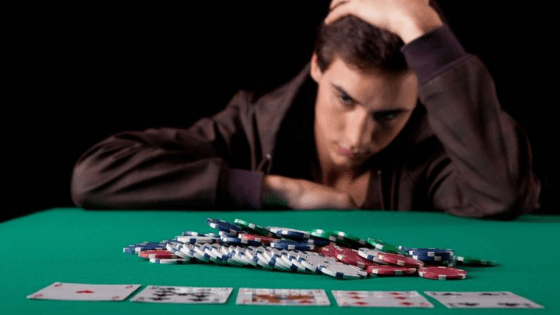
Gambling Addiction
Gambling can be a fun and exciting recreational activity; the nervous anticipation of the next card to be dealt, or rolling the dice, perhaps the heightened enjoyment of a football match on which you have a small monetary stake? What’s not to like? For some, however, gambling shifts from casual low risk pastime into serious addiction. Addiction can form when an individual begins to lose control and when it begins to affect a person’s financial, familial, social, recreational, educational, or occupational functioning.
Gambling, like some forms of substance abuse is associated with a release of dopamine in the brain. Studies show sometimes as much as 10 times more than what is normal. Dopamine has been referred to as the “feel good” neurotransmitter, and this special signalling chemical is active throughout the reward centres of the brain. So the release of dopamine tells your brain, “This feels good, give me more!” What begins as a harmless good feeling can turn into a compulsive need in some people. This happens because of the body’s natural response to external stimulation of dopamine production. In essence the dopamine neurotransmitters come to rely on the gambling to do their work for them. This natural physiological tendency creates a tolerance, which drives a need increased gambling in order to receive the same rush. Before long much like an addiction to substances, gambling becomes the vehicle of dependence to cause the addict continually seek it out to feel good or even to feel normal.
There is some evidence to suggest that certain people may be more physiologically and temperamentally vulnerable to gambling addiction than others. Some character indicators are those with an impulsive nature, those who seek out activities that provide immediate rewards and those who tend not to consider long-term consequences of actions. Some studies show that people who become addicted to gambling may actually produce lower levels of serotonin, which is associated with a general lack of interest in activities or a lack of pleasure derived from most activities (known as anhedonia in the mental health community). This may cause a person to engage in activities that increase the amount of serotonin in the brain, leading to feelings of happiness and pleasure that others may feel without the added stimulus. Other studies show that gambling addicts much like some who suffer substance abuse are genetically predisposed. These studies provide evidence that the parts of the brain that control inhibition and allow a person to think through potential consequences and rewards for certain actions may be under-active, leading to impulsivity and reward-seeking.
The following behaviours are signs that you may have a gambling addiction:
- obsessing over any type of gambling
- gambling to feel better about life
- failing to control your gambling
- avoiding work or other commitments to gamble
- neglecting bills and expenses and using the money for gambling
- selling possessions to gamble
- stealing money to gamble
- lying about your gambling habit
- feeling guilty after a gambling session
- escalating risks vs rewards while gambling
The following behaviours are signs that someone you know may have a gambling addiction:
- The individual may have more mood swings where they seem to be “high” some days and deeply depressed, withdrawn, or snappy other days.
- The individual may be neglecting bills, asking you for money frequently, or stealing from you.
- The individual may be are skipping school or work. This may coincide with poor performance in those areas as well.
- The individual’s time spent is unaccounted for along with discrepancies in their explanations.
- The individual may become reluctant to make plans with you or keep the plans that they make with you.
- The individual may be spending an inordinate amount of time online and become defensive when questioned.
- The individual may increasingly abuse drugs or alcohol. Gambling and substance use often go hand in hand because they trigger the release of the same feel-good chemical in the brain.
Here at Ibiza Calm, have highly trained professionals to help deal with gambling addiction. If you or a loved one exhibits any or all of the behaviours discussed in this article, please don’t hesitate to contact us in order to begin the process of ending the destructive cycle.
(SPAIN) +34 664 443 433
(UK) +44 203 868 5710
Share this information, choose your platform!
The link between chronic pain and mental health
Most of us have experienced acute pain in some form or another, a toothache, a headache, a laceration, or a broken bone. Generally, acute pain comes on quickly; for instance, an accident or infection; and it can be resolved with …
Addiction Transference
Addiction replacement or transference is classified by an individual in recovery substituting one addiction for another. This typically occurs during or after the treatment process for the original addiction. When a person enters treatment for addiction to drugs, alcohol, gambling …
Why do people self-harm?
Self-harming is the deliberate act of injuring oneself. There are many ways people can do this, and any repeated low or high-risk behaviour that causes harm or injury can be considered as self-harm. Common methods include – • Cutting, slicing, scratching, …
5 Reasons to Travel Abroad for Rehab
So, you’ve taken the brave first step in admitting that you need help, but where should you seek it? It is important to understand that rehab is not a one-size-fits-all model, so it is vital to find the right place …









